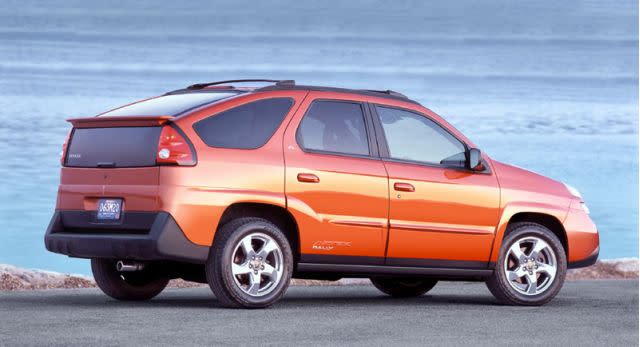Average U.S. car is now 11.6 years old, owners holding onto them longer than ever

As you drove over the river and through the woods to grandmother's house on Thanksgiving, did you notice that your car was a little squeakier than it used to be? Did it take longer to get up and going? Did it complain about its sciatica and about today's kids?
Hopefully, the answer to all those questions is "no", though your ride likely has every right to complain. According to research firm IHS Markit, the average car in America is a now record-breaking 11.6 years old--up slightly from the 11.5 years seen in 2015.
ALSO SEE: Nissan Juke vs. Jeep Renegade: Compare Cars
That statistic comes from an analysis of U.S. vehicle registrations--an analysis that yields a couple of other important facts:
1. There are now more than 264 million light vehicles in operation in the U.S. That's an all-time high, and it's up 6.2 million from 2015. That 2.4 percent surge is the biggest on record.
2. Owners are holding onto their vehicles longer than ever before. New-car owners keep their vehicles an average of 79.3 months, or 6.6 years. Used-car owners keep their rides for about 66 months, or 5.5 years.
And the trend of aging vehicles shows no sign of abating. IHS says that by 2021, the U.S. will see about 16 percent more vehicles in the new-to-five-years-old group; however, those in the six-to-eleven-years-old group will grow five percent, and those in the 12-years-and-older group will jump an impressive 10 percent.
READ: 2018 Audi Q5 review
In fact, by 2021, IHS projects that a whopping 81 million vehicles in the U.S. will be 16 years old or older. And 20 million vehicles will be 25 years or older.
What's behind this rapid aging of America's auto fleet? According to IHS's Mark Seng, it's due not only to strong sales following the Great Recession, but also to better build quality:
"Quality of new vehicles continues to be a key driver of the rising average vehicle age over time. The recession created an acceleration beyond its traditional rate due to the nearly 40 percent drop in new vehicle sales in 2008-2009. In the last couple of years, however, average age is returning to a more traditional rate of increase."
How old is your daily driver? Do you have concerns about your vehicle aging? Or is it holding up just fine? Share your thoughts in the comments below.
As you drove over the river and through the woods to grandmother's house on Thanksgiving, did you notice that your car was a little squeakier than it used to be? Did it take longer to get up and going? Did it complain about its sciatica and about today's kids?
Hopefully, the answer to all those questions is "no", though your ride likely has every right to complain. According to research firm IHS Markit, the average car in America is a now record-breaking 11.6 years old--up slightly from the 11.5 years seen in 2015.
ALSO SEE: Nissan Juke vs. Jeep Renegade: Compare Cars
That statistic comes from an analysis of U.S. vehicle registrations--an analysis that yields a couple of other important facts:
1. There are now more than 264 million light vehicles in operation in the U.S. That's an all-time high, and it's up 6.2 million from 2015. That 2.4 percent surge is the biggest on record.
2. Owners are holding onto their vehicles longer than ever before. New-car owners keep their vehicles an average of 79.3 months, or 6.6 years. Used-car owners keep their rides for about 66 months, or 5.5 years.
And the trend of aging vehicles shows no sign of abating. IHS says that by 2021, the U.S. will see about 16 percent more vehicles in the new-to-five-years-old group; however, those in the six-to-eleven-years-old group will grow five percent, and those in the 12-years-and-older group will jump an impressive 10 percent.
READ: 2018 Audi Q5 review
In fact, by 2021, IHS projects that a whopping 81 million vehicles in the U.S. will be 16 years old or older. And 20 million vehicles will be 25 years or older.
What's behind this rapid aging of America's auto fleet? According to IHS's Mark Seng, it's due not only to strong sales following the Great Recession, but also to better build quality:
"Quality of new vehicles continues to be a key driver of the rising average vehicle age over time. The recession created an acceleration beyond its traditional rate due to the nearly 40 percent drop in new vehicle sales in 2008-2009. In the last couple of years, however, average age is returning to a more traditional rate of increase."
How old is your daily driver? Do you have concerns about your vehicle aging? Or is it holding up just fine? Share your thoughts in the comments below.

 Yahoo Autos
Yahoo Autos 
